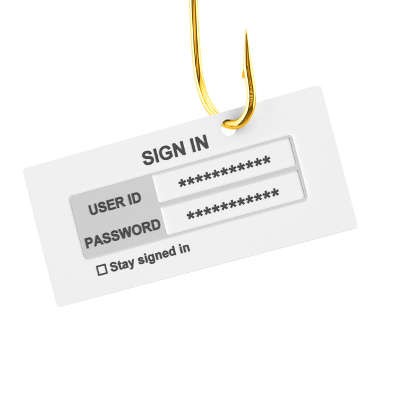One thing that both fishing and phishing have in common is the use of lures. With the right lure, the chance of successfully catching the target improves. When it comes to the digital lures seen in phishing scams, research shows that social media is the most effective.
In a recent security report released by security company phishd by MMR InfoSecurity, the company simulated attack campaigns targeting almost a million users. ITProPortal reports that “Almost a quarter of users clicked a link to be taken to a fake login screen. Out of that number, more than half (54 percent) provided user credentials, and 80 percent downloaded a file.”
These findings translate roughly to more than 10 percent of targeted users falling victim to the first two stages of the simulated attack and disclosing their user credentials. When you compare this rate to a traditional hacking method like spam email where the success rate is a fraction of a percentage point, you can see why hackers and scammers are turning to social media in droves.

Diving deeper into this study gives business owners even more reason to worry. James Moore, Managing Director of phishd by MWR InfoSecurity, observes, “More concerning is that out of those targeted with a social media request or a promotional offer, more than 10 percent downloaded a potentially malicious file via their corporate email accounts.” This means that a significant number of users have connected their social media activity to their work email accounts, a bad move that increases the risk of a company experiencing a data breach.
This study highlights the importance of businesses safeguarding their data by including strategies to protect them from phishing scams. Ultimately, this requires a multi-prong approach. In addition to implementing standard security tools like antivirus, spam blocking, and content filtering (which you can use to block social media websites on your network), you’ll want to include training so users will know how to spot a phishing scam, be it found on social media or elsewhere. Otherwise, hackers will utilize a lure so convincing that a user will bypass all of the security measures you’ve put in place–all so they can take advantage of a bogus deal, connect with a fake Facebook friend, respond to a fake job offer, etc.
Today’s businesses must protect their data from threats on every side: social media, email, mobile devices, malicious websites, and more. Is your business prepared to deal with the complex world of network security? If not, then scammers will take advantage of your blind spots and lure your network users into their traps. To make sure that your business is protected from the worst of the web, call Succurri at (206) 590-3312.
Want to learn more about what a Managed Security Services Provider is? Listen to Succurri partner, Grant Eckstrom, and Fractional CMO, Tony Lael, discuss the topic in more depth in this video.





